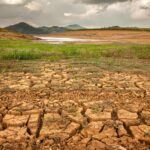Ian Parmeter, Australian National University
In hindsight, the drivers of Hamas’s startlingly well-planned, land-sea-air attack on Israel on Saturday were in plain sight.
The operation reflects a pattern of four wars and regular outbreaks of violence between Israel and Hamas militants in Gaza since 2005, when Israel withdrew its military posts and forcibly removed 9,000 Israeli settlers from the territory.
Each time Hamas has launched rockets at Israel or engaged in similar provocations, it has drawn heavy retaliation from Israel in the form of major bombings on the Gaza Strip. Hamas, however, seems to regard this as a cost of doing business.
An important factor motivating Hamas towards violence is that it has to watch its flanks. Other smaller, but increasingly extremist groups, are contesting its authority in Gaza, notably Palestinian Islamic Jihad.
ALSO READ: Explainer: Israel-Palestine conflict throughout the ages
These groups have, at times, independently launched rocket attacks on Israel, which bring retribution on the whole territory.
On top of this, the Israeli government formed by Prime Minister Benjamin Netanyahu last December is the most right wing in Israeli history. This government has made no secret of its desire to annex the West Bank and has permitted significant expansion of Jewish settlements in the territory, which are illegal under international law.
That has led to conflict between settlers and young West Bank Palestinians, who in the past year have formed a loose grouping known as the “Lions’ Den”.
This grouping, comprising independent militants with apparently no central control, has scant regard for the Palestinian Authority, which governs the West Bank and is led by the octogenarian Mahmoud Abbas. The Palestinian Authority has little real administrative, security or moral authority in the territory.
The “Lions’ Den” also vies with Gaza militant groups for influence among Palestinian youth – both in Gaza and the West Bank.
Added to this, a minister in Netanyahu’s coalition, Itamar Ben-Gvir, has visited the Temple Mount, the site of the Al-Aqsa Mosque, one of the holiest shrines in Islam. This was considered a provocation by all Palestinians – both in the West Bank and Gaza. Further angering Palestinians, Israeli tourists also travelled to the site over the recent Sukkot holiday.
A visit to the Temple Mount by Ariel Sharon in 2000, then the leader of the opposition in Israel’s government, is generally regarded as the spark that ignited the Second Intifada from 2000-2005.
Under an agreement predating Israel’s foundation, Jordan has custodianship of the Al-Aqsa religious complex. Israel aimed to respect Jordan’s role when it signed the Israeli-Jordanian peace treaty in 1994. But Palestinians see the visits by Israeli ministers and non-Muslim tourists as disrespectful of the sanctity of the site and counter to this undertaking.
Hamas has also claimed these visits have led to the desecration of the Al-Aqsa site, an argument obviously aimed at winning support from Muslims throughout the Arab and wider Islamic world.
ALSO READ: 2023 Israel-Palestine clashes: World leaders react
Why did Hamas attack now?
Significantly, Hamas has named its action “Operation Al-Aqsa Flood”. This provides some clues to the primary reason for striking at this time, which emphasises what Hamas sees as Israeli acts of desecration of a holy Islamic site.
However, an additional motivating factor was likely the increasing tendency of Arab states to make peace agreements with Israel, as evidenced by the 2020 Abraham Accords, involving the United Arab Emirates, Bahrain, Sudan and Morocco.
There has recently been strong speculation that Saudi Arabia is about to make its own agreement with Israel.
This is of great concern to all Palestinians, not just those in the West Bank, as it further reduces pressure on Israel to reach a settlement with them. Netanyahu has made clear in his public statements that he prioritises peace with Arab states over eventual peace with the Palestinians.
Hamas does not recognise Israel, but has said it would observe a truce if Israel withdrew to its 1967 borders. Israel would be unlikely to take Hamas’s word on this and withdraw as demanded. But there would be even less chance of that condition ever being realised if Saudi Arabia were to conclude its own deal with Israel.
Another aspect of the timing is that it coincides almost precisely with the 50th anniversary of the start of the Yom Kippur or Ramadan War in October 1973, when Egypt and Syria attacked Israel together. The significance of a Palestinian entity being able to surprise Israel in the same way would not be lost on Hamas.
So there were several objectives for Hamas to launch an attack at this time – and possibly a combination of them.
Hamas is likely to gain much sympathy from the wider Arab world, but little in the way of material assistance. Hamas’s military operation will likely cause Saudi Arabia to hold back from normalising relations with Israel for now. That said, it’s unlikely any of the Arab states that have signed the Abraham Accords will withdraw from them now in protest over Israeli retaliation against Gaza.
Where the conflict is headed?
Where the conflict is headed is unclear. The Hezbollah militant group in Lebanon has already fired on positions in Israel’s north. But the extent to which it will become seriously involved will depend on its sponsor, Iran.
Tehran has generally been seen to want to keep Hezbollah’s considerable rocket and missile strength in reserve in case of an Israeli strike on Iranian nuclear facilities.
There is also the question of whether “Lions’ Den” militants in the West Bank will launch their own attacks, effectively creating a third front against Israel. And a possible fourth front could come from attacks on Jewish Israelis by Arab Israelis living in Israel.
US President Joe Biden has already promised support for Israel, so there can be little doubt Israel will eventually get on top of these challenges. Netanyahu has warned of a long war, but it may prove reasonably short if Israel goes all out in its retaliation.
The main constraint on Israeli action against Gaza will be the fact that an unknown number of Israeli citizens have been kidnapped by Hamas militants and taken to the strip. Indiscriminate Israeli bombing would certainly put those lives at risk.
Israel will also be reluctant to put its defence forces in Gaza because of the risk of heavy casualties. However, it may send special forces if it gains intelligence on the whereabouts of its kidnapped citizens.
A further risk for Israel in its retaliation is that too brutal an assault on Gaza could turn Western opinion against it. So far, however, Western governments are strongly supportive of Israel and unsympathetic towards Hamas.
The overall lesson for Israel is that it has to develop a policy for managing the Palestinians living in the areas it controls.
The current situation, in which hardline militants are contained in Gaza, while Israeli forces curtail the actions of Palestinians living in Israel and the West Bank, has suited the Israeli government for many years. It has been able to ignore Arab and international pressure to negotiate a two-state solution or to acquiesce in a one-state solution.
The real significance of Hamas’s operation is that such a non-policy can no longer continue.
Ian Parmeter, Research Scholar, Centre for Arab and Islamic Studies, Australian National University
*This article is republished from The Conversation under a Creative Commons license. Read the original article.













